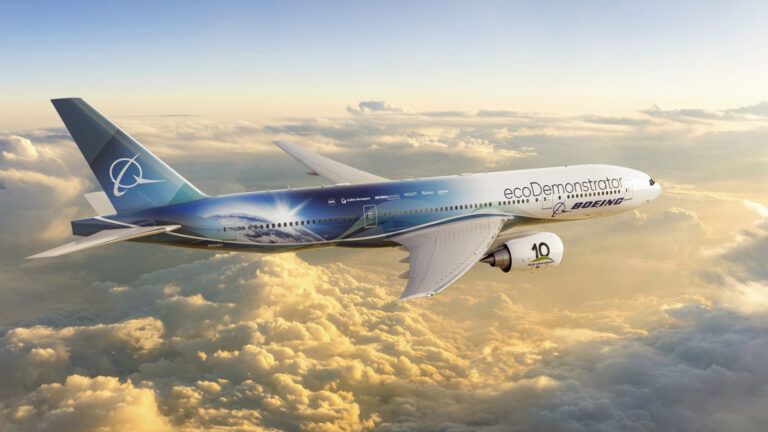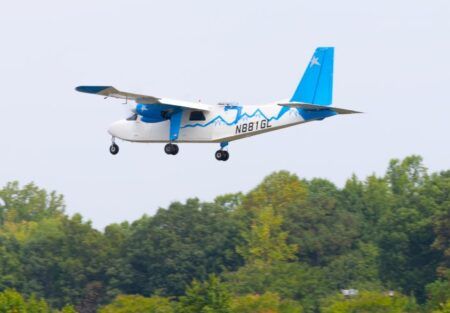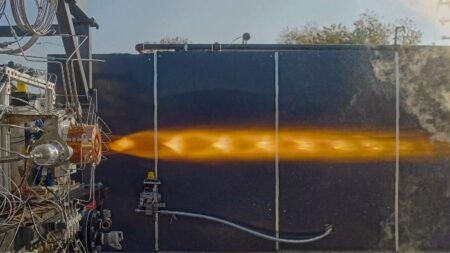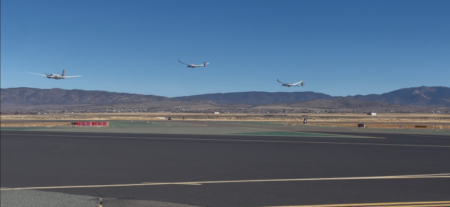Tests will include a water conservation system, additively manufactured aircraft and engine parts, environmentally preferred refrigerant, new fire suppression agents, and a heads-up enhanced vision system for pilots.
The primary focus of these tests is the reduction of weight, fuel consumption and greenhouse gases, with Boeing also pledging a continuation of studies into the impact of sustainable aviation fuel (SAF).
Boeing is partnering with a wide array of customers, suppliers, government agencies, academia and other stakeholders, including: Diehl Aviation, Meggitt, Collins Aerospace and Universal Avionics.
Additionally, Boeing will collaborate with NASA and SMART vortex generators looking at vertical vanes and aerodynamic efficiency. For all flight tests, the 777-200ER will fly on a 30/70 blend of SAF and conventional jet fuel.
“The Boeing ecoDemonstrator program brings together the two most important ingredients to a more sustainable future – innovative technologies and partnerships with customers, suppliers, government agencies and academia,” said Chris Raymond, Boeing’s chief sustainability officer.
“We celebrate the past successes and look forward to continuing this iconic program to help decarbonize aviation, together.”
Since its initial flights in 2012, the Boeing ecoDemonstrator program has tested about 230 technologies to help decarbonize aviation, improve operational efficiency and enhance safety and the passenger experience.
Nine aircraft have served as test beds for the ecoDemonstrator program, starting with the American Airlines 737-800 at the program’s inception. Prior to 2022, the most recent test craft in use was the Alaska Airlines 737-9.
Approximately a third of tested technologies have progressed onto Boeing’s products and services.





